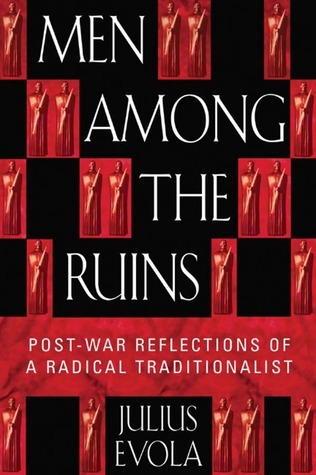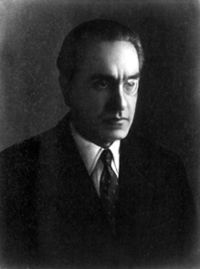
Julius Evola's masterful overview of the political and social manifestations of our time, the "age of decline" known to the Hindus as the Kali Yuga. • Reveals the occult war that underlies the crises that have become a prevailing feature of modern life. • Includes H. T. Hansen's definitive essay on Evola's political life and theory. Men Among the Ruins is Evola's frontal assault on the predominant materialism of our time and the mirage of progress. For Evola and other proponents of Traditionalism, we are now living in an age of increasing strife and the Kali Yuga of the Hindus or the Germanic Ragnarok. In such a time, social decadence is so widespread that it appears as a natural component of all political institutions. Evola argues that the crises that dominate the daily lives of our societies are part of a secret occult war to remove the support of spiritual and traditional values in order to turn man into a passive instrument of the powerful. Evola is often regarded as the godfather of contemporary Italian fascism and right-wing radical politics, but attentive examination of the historical record—as provided by H. T. Hanson's definitive introduction—reveals Evola to be a much more complex figure. Though he held extreme right-wing views, he was a fearless critic of the Fascist regime and preferred a caste system based on spirituality and intellect to the biological racism championed by the Nazis. Ultimately, he viewed the forces of history as comprised by two "history's demolition squad" enslaved by blind faith in the future and those individuals whose watchword is Tradition. These latter stand in this world of ruins at a higher level and are capable of letting go of what needs to be abandoned in order that what is truly essential not be compromised.
Author

Julius Evola (19 May 1898 – 11 June 1974), born Giulio Cesare Andrea Evola, was an Italian philosopher and esoteric scholar. Born in Rome to a family of the Sicilian landed gentry, Evola was raised a strict Catholic. Despite this, his life was characterised by 'an anti-bourgeois approach' hostile to both 'the dominant tradition of the West—Christianity and Catholicism—and to contemporary civilization—the 'modern world' of democracy and materialism'. By turns 'engineering student, artillery officer, Dadaist poet and painter, journalist, alpinist, scholar, linguist, Orientalist, and political commentator', he has been described as a 'rare example of universality in an age of specialization'. Yet behind it all lay a singular emphasis on, and pursuit of, a 'direct relationship to the Absolute'. For Evola, 'the center of all things was not man, but rather the Transcendent.' This metaphysical conviction can be seen to have determined both Evola's stance on socio-political issues, and his antipathetic attitude towards 'all professional, sentimental and family routines'. The author of many books on esoteric, political and religious topics (including The Hermetic Tradition, The Doctrine of Awakening and Eros and the Mysteries of Love), his best-known work remains Revolt Against the Modern World, a trenchant critique of modern civilisation that has been described as 'the gateway to his thought'. Since his death, also in Rome, his writings have influenced right-wing, reactionary and conservative political thought not only in his native Italy, but throughout continental Europe and, increasingly, the English-speaking world. Nevertheless, he should not be considered primarily as a political thinker, but rather as an exponent of the wider Traditionalist School that encompasses the work of such individuals as René Guénon, Titus Burckhardt and Frithjof Schuon.